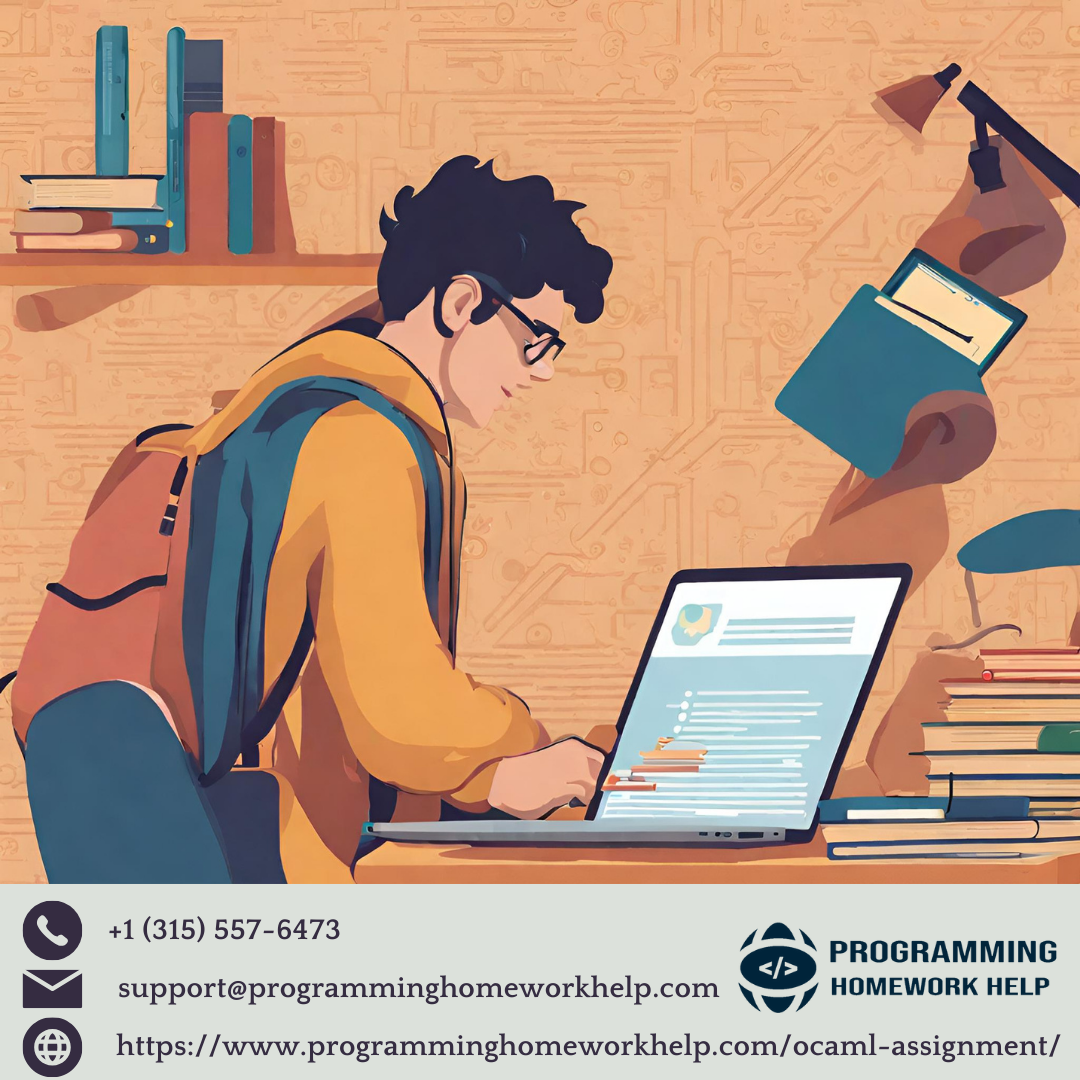OCaml, a powerful and expressive functional programming language, has gained popularity among programmers for its versatility and efficiency. If you're reading this, it's probably because you're facing an OCaml programming assignment that's causing some confusion. Fear not! In this blog, we'll delve into key concepts and provide a step-by-step guide to help with OCaml programming assignment, ensuring you can tackle it with confidence.

Before you start writing any code, it's crucial to fully grasp the problem statement. Take your time to read it thoroughly and highlight the key requirements. Pay attention to input and output specifications, constraints, and any specific algorithms or data structures you need to use. If there's anything you don't understand, don't hesitate to ask your professor or TA for clarification.
Once you understand the problem, it's time to plan your approach. This step can save you a lot of time and frustration down the line. Think about the overall structure of your program, how you will represent data, and the functions you'll need to implement. Pseudocode can be incredibly helpful at this stage. Break the problem into smaller, manageable subproblems that you can solve incrementally.
OCaml is a functional language, which means it relies on mathematical functions and avoids changing state and mutable data. To successfully complete your assignment, you need to be familiar with OCaml's core concepts:
Immutable data: In OCaml, once you create a data structure, you can't change it. You create new structures based on the old ones.
Pattern matching: This is a powerful way to destructure data and perform different actions based on its shape. You'll use pattern matching extensively in OCaml.
Recursion: In functional programming, loops are replaced by recursive functions. Understanding recursion is essential for OCaml programming.
Type system: OCaml has a strong type system that enforces type safety. You need to declare types and work with them correctly.
List and tuple manipulation: Lists and tuples are fundamental data structures in OCaml. You'll frequently work with them in your assignments.
Now that you have a plan and a good understanding of OCaml's key concepts, it's time to start coding. Begin by implementing the smaller subproblems you identified in your plan. Test your code incrementally to ensure it works as expected before moving on to more complex parts.
Use OCaml's type system to your advantage. Declare types and use them to enforce data correctness. Leverage pattern matching to handle different cases and ensure your functions are robust.
Testing is a crucial part of any programming assignment. Create a set of test cases that cover different scenarios and edge cases. Test your code rigorously to identify and fix any bugs or unexpected behavior.
OCaml has debugging tools like ocamldebug that can help you step through your code and find issues. Don't hesitate to use them if you encounter difficulties.
Once your code is working as expected, it's a good practice to add documentation. Write comments that explain your code's logic, functions' purposes, and input/output descriptions. This will make your code more readable and help you get a better grade on your assignment.
Before submitting your assignment, double-check that it meets all the requirements outlined in the problem statement. Ensure your code is clean, well-documented, and thoroughly tested. Make sure to submit your work before the deadline to avoid any late penalties.
Tackling an OCaml programming assignment may seem daunting at first, but with a solid plan and a good grasp of OCaml's core concepts, you can successfully conquer it. Remember to understand the problem, plan your approach, explore OCaml's features, code incrementally, test rigorously, document your code, and submit your work on time. By following these steps, you'll not only complete your assignment but also improve your OCaml programming skills along the way. Happy coding!